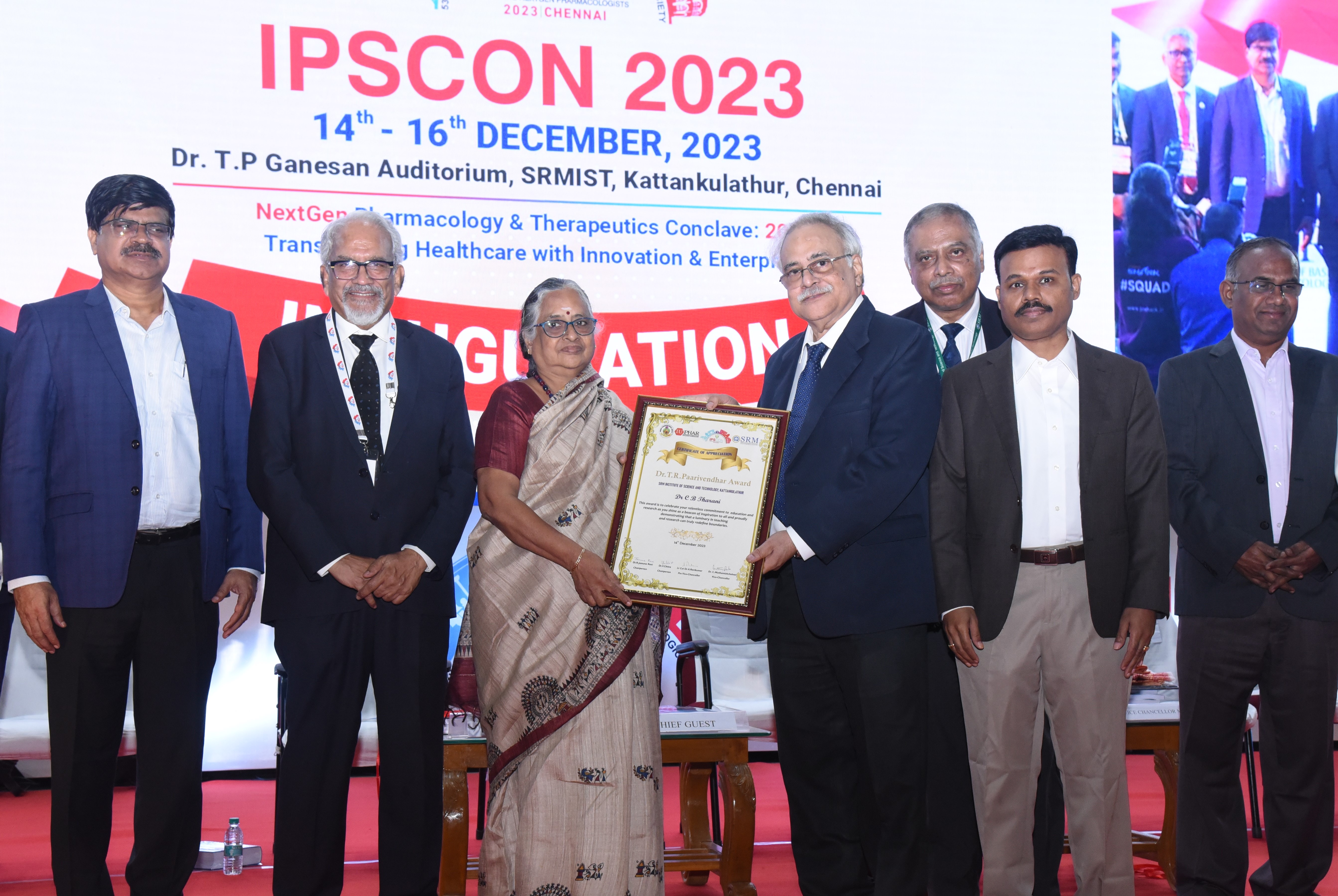KATTANKULATHUR, 14.12.23
The immense potential for widespread partnership between industry and the academia for innovation and research in pharmacology largely remained untapped in India, Dr. T.S.Surendran, Chairman, Sankara Nethralaya, said on Thursday.
Speaking at the inaugural function of IPSCON 2023 – the 53rdannual conference of Indian Pharmacological Society organised by Department of Pharmacology and SRM Center for Clinical Trials and Research, along with SRM College of Pharmacy, Dr. Surendran said the lack of such a collaboration between the industry and academia restricted resources and expertise, thereby stunting the growth of pharmacological advancements.
Pharmacology crucial in shaping medicine:
Stating that pharmacology was crucial in shaping the landscape of medicine, he said its impact on healthcare could not be overstated. With the understanding of drug mechanism and their effects on the human body, there has been a revolution in treatments and patient outcomes. Dr. Surendran said as he was involved in paediatric ophthalmology, he had witnessed transformative pharmacology for tailored treatments for children by administering low dose medicines to control short sightedness.
“The ability to merge pharmacological advancements with specialised care has significantly enhanced our ability for targeted therapies and to ensure the well-being of youngest and most vulnerable patients,” he remarked.
He said that the commitment to ethical practice, patient safety, equitable health care, and access should always be the top priority of the medical fraternity. The evolving landscape of pharmacological research constantly motivates people in this field and nurture the spirit of innovation, both inter-disciplinary and international collaborations will speed up learning and growth.
Dr. Surendran also said that in the realm of pharmacology and drug development, there were several challenges that needed the collective attention and concerted efforts of all stakeholders. “Without adequate resources for research on disease models, our ability to comprehend and combat diseases effectively is impeded to a large extent, he added.
Innovation, research, key to institutions:
While delivering the Presidential address, Dr. P.Sathyanarayanan, Pro Chancellor (Academics), SRMIST, said the conference’s theme focussing on transformation through innovation and research was relevant as both were key for institutions and the industry. Stating that India was the pharmacy capital of the world – contributing to 40 % of vaccines and 50 % of generic medicines.
Recalling that India was the superpower of the world once due to being the epicentre of education, having universities like Nalanda, he said that gradually this moved to the west with emergence of universities like Oxford, Cambridge, and Harvard. He said a well-established connection between institutions, industry, and the government can bring about a breakthrough in revolution in pushing economic growth. He said the conference will pave the way for innovation and research resulting in development of products that could be commercialised in the industry.
“AT SRM, we plan to incorporate all of these that can offer end-to-end solutions so that we can have a Centre of Excellence in Pharmacology. We have already done COVID 19 trials and received good traction in this area, but we wish to improve on this,” Dr. Sathyanarayanan said.
Prof Dr. Y.K.Gupta, President, AIIMS, Jammu, Dr Shiv Prakash, and Dr. B.Balakumar, President and General Secretary respectively of Indian Pharmacological Society, and Dr. Satyajit Mohapatra, Director SRM Centre for Clinical Trial Research spoke on the occasion. Dr. R.Jamuna Rani, organising chairperson, IPSCON 2023 and Head, Department of Pharmacology, welcomed the Gathering. Dr. C.Muthamizhchelvan, Vice Chancellor, SRMIST, Lt. Col (Dr.) A.Ravikumar, Pro Vice Chancellor, MHS, SRMIST, and Dr. S.Ponnusamy, Registrar, SRMIST, were also present. The Dr. T.R.Paarivendhar Award was also distributed to eminent people who had made significant contributions to the field of pharmacology.


